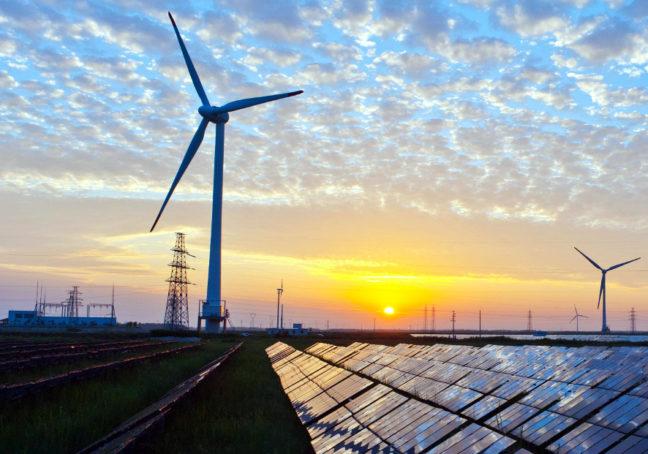University of Wisconsin geoscience professor Alan Carroll gave a talk on energy and the Earth Monday as part of a free public seminar at the Wisconsin Energy Institute.
The public seminar focused on major principles governing humanity’s current use of energy and served as a required course for engineering students pursuing a certificate in energy sustainability.
The seminar explored how different disciplines understand energy challenges and develop solutions. Carroll, a UW faculty member of 22 years with a longtime interest in energy resources, hoped to share his unique perspective with students by looking at energy and geology from the perspective of Earth as a whole.
Carroll began his seminar by explaining where energy comes from. Carroll said energy is harnessed through gravity, the sun, planetary accretion and radioactive decay.
He emphasized the difference between energy and power, with energy being the measure of future power and power being the rate at which energy is transferred.
Carroll then discussed oil production and the magnitude of fossil fuel energy as well as fracking and soil erosion.
To better explain these subject areas, Carroll used his three principles of energy: Quality not quantity, technology changes reality and there’s no free lunch.
The “quality not quantity” principle referred to the total energy available on Earth and how to use it both efficiently and cheaply. He said the total energy available to people on Earth is many thousands of times greater than needed, and the total solar energy striking Earth is about 11,000 times more than human consumption.
“How we use that energy is what really matters,” Carroll said.
“Technology changes reality” refers to new methods in harnessing energy and power, including new extraction processes for oil and gas, and the age-old nitrogen fertilizer as a common and cheap force to render crop growth.
Office of Sustainability reps introduce methods to make ASM offices Green Office certified
Carroll said a “distinct” progression in technological advancement with regards to energy production and consumption can be seen through time.
Carroll’s third principle, “there’s no free lunch,” referred to the reality that even some of the most environmentally friendly implications still have negative effects. Carroll discussed water consumption and how even biofuels use vastly more water than any other energy system.
“There is nothing out there that is purely ‘green,'” Carroll said. “There will always be some negative side effects.”
Carroll will lecture at similar seminars throughout the semester.














